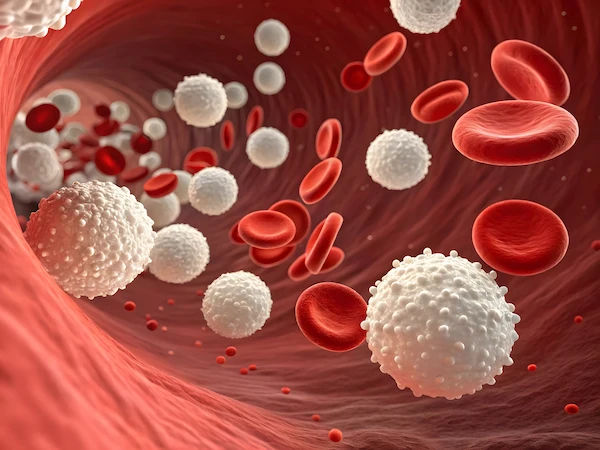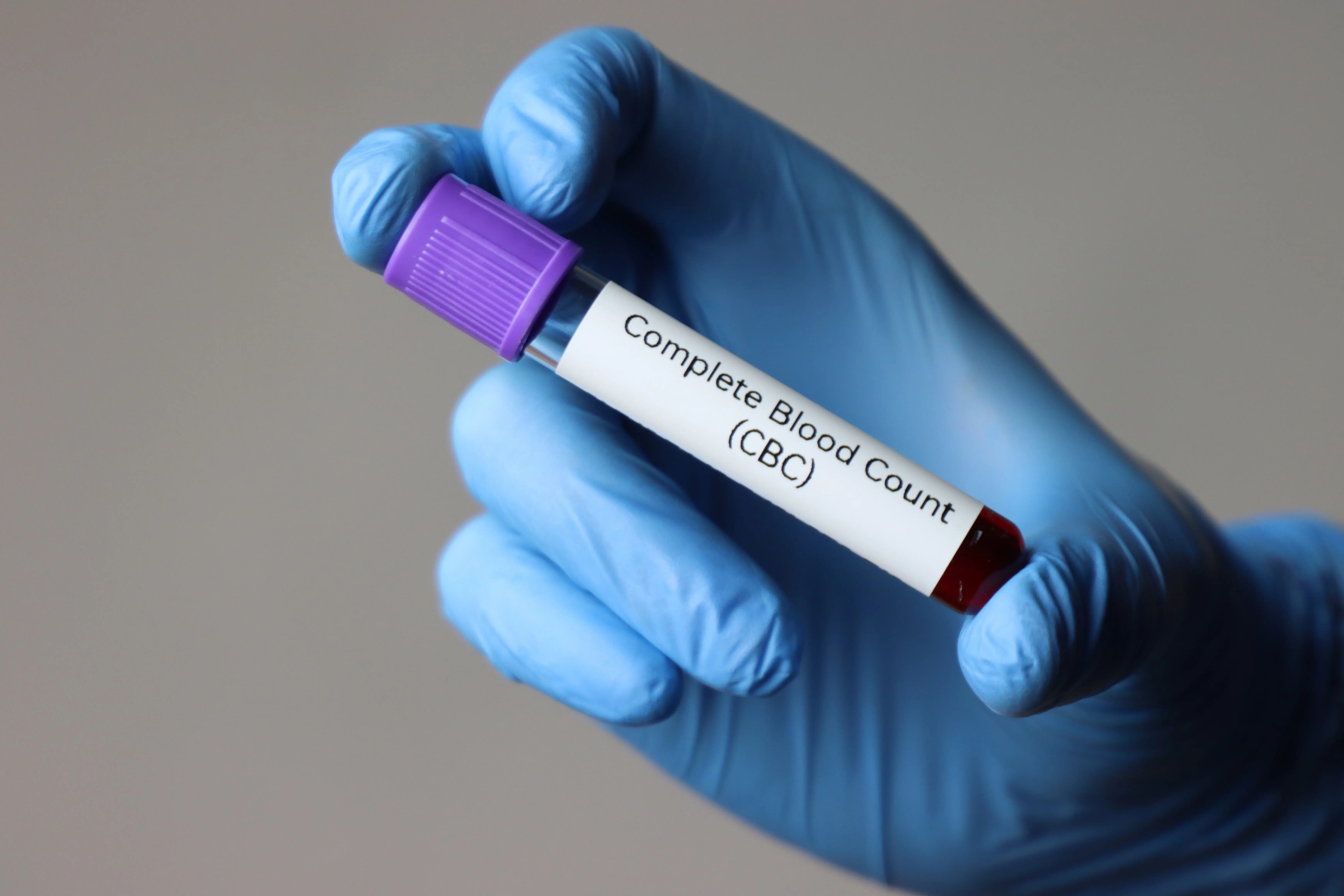How To Read CBC Test Report: Normal Ranges & Meaning
Learn how to read a CBC test report with this guide on normal ranges and what each component means. Understand your blood health and when to seek medical advice.

Written by Dr. Dhankecha Mayank Dineshbhai
Reviewed by Dr. D Bhanu Prakash MBBS, AFIH, Advanced certificate in critical care medicine, Fellowship in critical care medicine
Last updated on 9th Sep, 2025

A Complete Blood Count (CBC) is one of the most common blood tests your doctor may order, whether you're feeling unwell, undergoing a routine health check, or monitoring a known condition. But once you have the CBC test report in hand, it can be confusing to interpret all those numbers and abbreviations. In this article, we’ll simplify your CBC test report by explaining what each component means, what the CBC normal values are, and how to interpret the results like a professional, even if you’re not from a medical background. Whether you’re checking your WBC count due to a recent infection or monitoring haemoglobin levels for anaemia, this guide will help you understand what’s really going on inside your blood.
What Is a CBC Test Report?
A CBC test report provides a detailed picture of your blood’s health. It counts and evaluates three main types of blood cells:
- White Blood Cells (WBCs): Fight infection
- Red Blood Cells (RBCs): Carry oxygen
- Platelets: Help with blood clotting
The test also measures haemoglobin (Hb), haematocrit (HCT), and indices like MCV, MCH, and MCHC, which give more insight into red blood cell size and function.
Why Is a CBC Test Done?
Doctors recommend a CBC test for several reasons:
- To investigate causes of fatigue, weakness, or fever
- To check for infections, inflammation, or bleeding
- To diagnose conditions like anaemia, leukaemia, or clotting disorders
- To monitor response to treatments like chemotherapy
- As part of an annual health check-up
CBC Normal Values: A Quick Reference Chart
Here’s a handy reference of CBC normal values for adult males and females. Note that values may slightly vary between labs.
Understanding Your CBC Test Report: Key Parameters
Let’s walk through the most important sections of a CBC test report and what they reveal about your health.
1. WBC Count (White Blood Cells)
WBCs help fight infection. They’re like your body’s soldiers.
- High WBC count (>11,000 /µL): Suggests infection, inflammation, or sometimes leukaemia.
- Low WBC count (<4,000 /µL): May point to immune suppression (due to certain medications, viral infections, or bone marrow disorders).
Tip: If you're recovering from a cold, your WBC count may still be slightly elevated.
Get A CBC Test Done
2. RBC Count (Red Blood Cells)
RBCs carry oxygen from your lungs to the rest of the body.
- Low RBC count: Common in anaemia (iron deficiency, B12 deficiency).
- High RBC count: May occur in smokers, dehydration, or high-altitude dwellers.
Your RBC count works closely with haemoglobin and haematocrit to assess overall oxygen-carrying capacity.
3. Haemoglobin (Hb)
This is the iron-rich protein in red blood cells responsible for carrying oxygen.
- Low Hb: Indicates anaemia; symptoms may include fatigue, dizziness, or shortness of breath.
- High Hb: Can occur in polycythaemia vera (a rare blood disorder) or from chronic low oxygen levels.
Normal Hb values:
- Men: 13.8–17.2 g/dL
- Women: 12.1–15.1 g/dL
4. Haematocrit (HCT)
Represents the percentage of your blood that consists of red cells.
- Low HCT: Often mirrors low haemoglobin or RBC levels.
- High HCT: Seen in dehydration or diseases that increase red blood cell production.
5. Platelet Count
Platelets help your blood to clot and stop bleeding.
- Low platelet count (<150,000): May cause easy bruising or prolonged bleeding.
- High platelet count (>450,000): May signal inflammation or bone marrow disorders.
6. MCV (Mean Corpuscular Volume)
This tells you how big your red blood cells are.
- Low MCV: Suggests microcytic anaemia (often due to iron deficiency).
- High MCV: Seen in B12 or folate deficiency anaemia (macrocytic anaemia).
7. MCH and MCHC
These values tell you how much haemoglobin is in each red blood cell (MCH) and how concentrated it is (MCHC).
- Low MCH/MCHC: Cells are pale and underfilled with Hb, common in iron deficiency anaemia.
- High MCH/MCHC: Less common, but may be due to spherocytosis or other rare blood disorders.
8. RDW (Red Cell Distribution Width)
RDW measures variation in size of red blood cells. It’s helpful in classifying types of anaemia.
- High RDW: Suggests a mix of small and large cells, often seen in iron deficiency or B12 deficiency anaemia.
- Normal RDW: Usually a sign of uniform RBC population.
Interpreting Your CBC Test Report: Common Scenarios
A CBC test report can reveal more than just numbers—it tells a story about what might be happening inside your body. By recognising patterns among your WBCs, RBCs, haemoglobin, and other values, doctors can narrow down possible causes for your symptoms. Here are some common CBC result combinations and what they could indicate:
Scenario 1: Fatigue and Weakness
Report: Low Hb, low RBC count, high RDW
Possible diagnosis: Iron deficiency anaemia
Scenario 2: Recent Fever
Report: High WBC count, elevated neutrophils
Possible diagnosis: Bacterial infection
Scenario 3: Easy Bruising
Report: Low platelet count
Possible diagnosis: Thrombocytopenia (may be due to dengue, medication side effects, or immune issues)
Scenario 4: Vitamin Deficiency
Report: High MCV, low Hb
Possible diagnosis: B12 or folate deficiency anaemia
How to Prepare for a CBC Test?
Preparing for a Complete Blood Count (CBC) test is simple, but following a few guidelines ensures accurate results and a smooth experience:
- No fasting required: You typically don't need to fast unless your doctor has ordered additional tests (e.g. blood sugar or cholesterol) along with the CBC.
- Stay hydrated: Drink plenty of water beforehand. It helps make your veins easier to access for blood collection.
- Inform your doctor about medications: Some medicines (like antibiotics, steroids, or chemotherapy) can affect your blood counts.
- Avoid intense exercise before the test: Strenuous activity may temporarily alter certain blood parameters.
- Wear loose clothing: Preferably with sleeves that roll up easily for quick access to your arm.
- Stay calm and relaxed: Stress or anxiety can sometimes affect your WBC count slightly.
- Let the lab know if you're feeling unwell: Fever or recent infection may influence the interpretation of results.
- Schedule wisely: Try to take the test in the morning, as blood cell levels can vary slightly throughout the day.
What to Do After Receiving Your CBC Test Report?
Once you’ve received your CBC test report, it’s important to understand what the results mean and how to act on them. Here’s a step-by-step guide to help you navigate your next steps wisely and safely:
- Consult Your Doctor: Always let a healthcare provider interpret the results in the context of your symptoms and history.
- Don’t Panic: Small deviations from normal values may not always be clinically significant.
- Follow-Up if Needed: Abnormal results may require further testing like iron studies, B12 tests, or bone marrow analysis.
- Make Lifestyle Adjustments: If you’re anaemic, iron-rich foods and supplements might be recommended.
When Should You Get a CBC Test?
You should consider taking a CBC test if:
- You’re experiencing persistent fatigue or weakness
- You have a fever that lasts more than a few days
- You notice unusual bleeding or bruising
- You’re undergoing treatment for chronic illness (cancer, autoimmune disease)
- As part of your routine annual health check-up
Explore CBC Test Options at Apollo 24|7.
Conclusion
A CBC test report may look overwhelming at first, but with a little understanding, you can decode what those values mean and take charge of your health. From diagnosing infections to identifying anaemia or clotting problems, the CBC test is a powerful window into your body’s function. Keep in mind that CBC results should always be interpreted alongside symptoms and other investigations. If your CBC test report shows abnormalities, your doctor may order additional tests to confirm a diagnosis and start appropriate treatment. Book your CBC test with Apollo 24|7 today, available with sample collection from the comfort of your home.


.webp)


